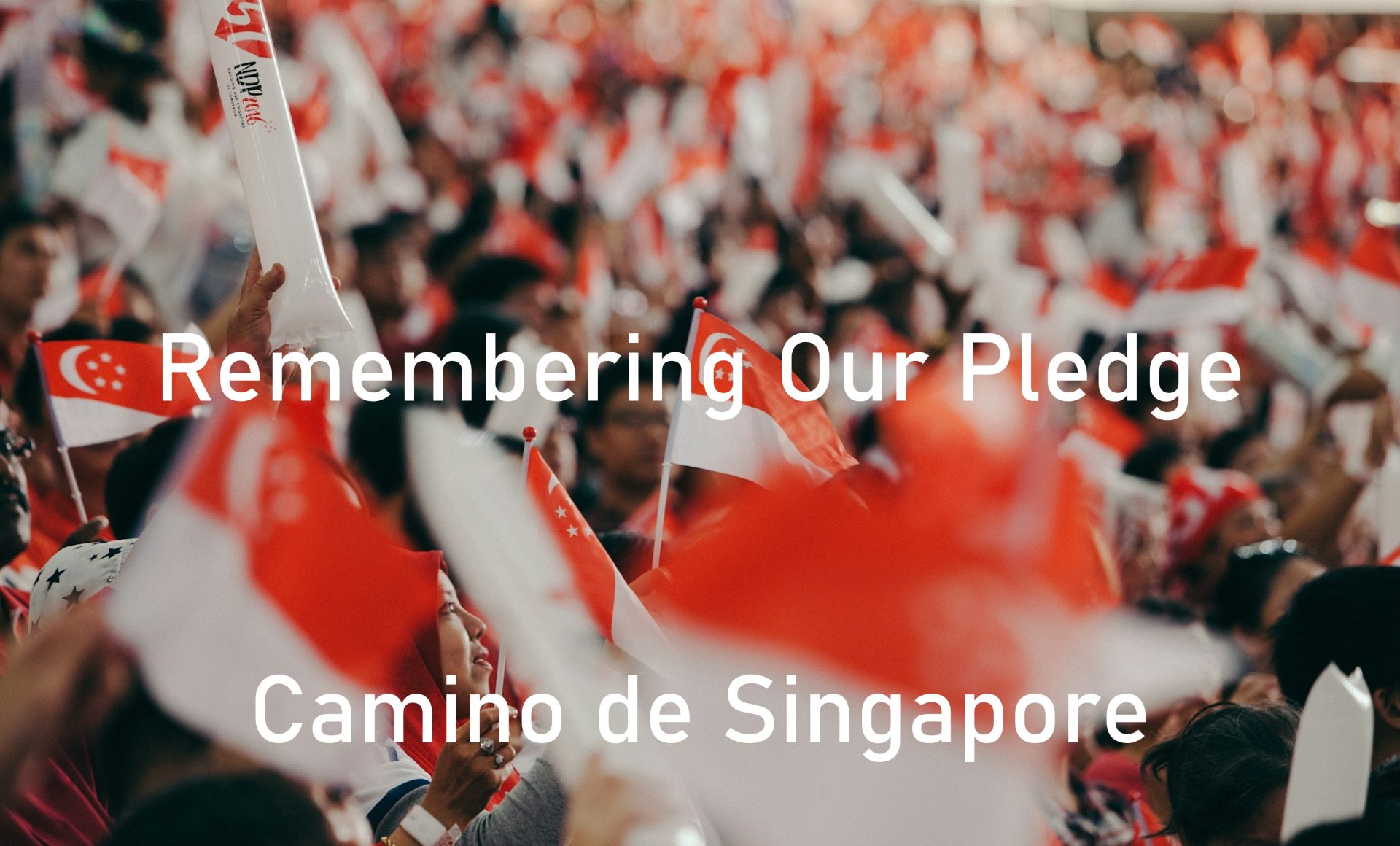No products in the cart.

We have just celebrated 60 years of independence as a nation. It is truly a milestone! The mood has been somewhat cautious given the uncertainties surrounding military conflicts and trade wars, but there is also a lot of optimism when we look back and see how far this little red dot has come.
As we move forward to an uncertain future, it is a good time to relook at a key component of Singapore’s identity: the National Pledge we recited daily when we were in school.
We, the citizens of Singapore,
pledge ourselves as one united people,
regardless of race, language or religion,
to build a democratic society
based on justice and equality
so as to achieve happiness, prosperity
and progress for our nation.
Whenever we say the Pledge, we are making three promises. First, we commit to unity and do not discriminate others who are of a different race, language or religion. Second, we promise to cultivate a society that is democratic, just and equal. This means we are working towards a Singapore that encourages the participation of everyone in nation building without favouring any one particular group. Finally, we do all these for the sake of a progressive and prosperous Singapore. In other words, we do not aim only for our personal happiness but that of the entire nation.
Christians should not see these promises contained in the Pledge as separate from their religious commitment. The Catholic Church’s social teaching tradition affirms that every person is equally invaluable, being made in the image of God, and so must not be discriminated. The Church also insists that every person has the right and responsibility to participate in the development of the society regardless of differences in ability. Finally, the Church urges everyone to pursue the common good, which is only achieved when a society allows every person to achieve happiness, prosperity and progress.
Looking back, those who came before us have done well. Compared to so many others, our multiracial society is by and large harmonious with little unrest. Singapore has developed from a fledgling young country to one of the most prosperous (relative to its population size) in the world. The Catholic Church has contributed much too to this progress with schools, healthcare facilities and services to the poor, among many others.
But what about today and tomorrow? The world has changed so much since Singapore became independent. As the world becomes smaller given the rapid growth in communication technology, it is becoming more complex and volatile. On the one hand, we must continue and not depart from our core values. On the other hand, the context and how we apply these values may change with time.
Reflecting on what the Prime Minister said recently about building a “we first” society, perhaps one way to apply our core values found in the Pledge in a new context is to consider how we can be more inclusive towards those who are culturally very different from most Singaporeans. I am thinking of our migrant communities. They have contributed so much to our progress and happiness, taking on difficult and dangerous work that continues to carry Singapore’s development. Have we considered how much we, as a “we first” society, can add to their progress and happiness? Amidst headline-grabbing concerns over trade wars and national security, perhaps this is one equally important question to bring home as we progress together as Singapore.
Related News
The parade that stretched from the Padang to Marina Bay (CNA, 9 August 2025)
Erwin Susanto works for Caritas Singapore. He enjoys arcane conversations on the Old Testament/Hebrew Bible in the context of the Ancient Near East. He enjoys thinking about all sorts of contemporary issues and often wonders if punditry is fun.
